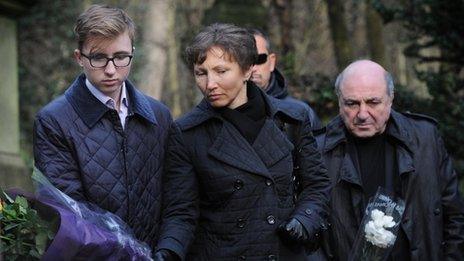Alexander Litvinenko: The journey to a public inquiry
- Published
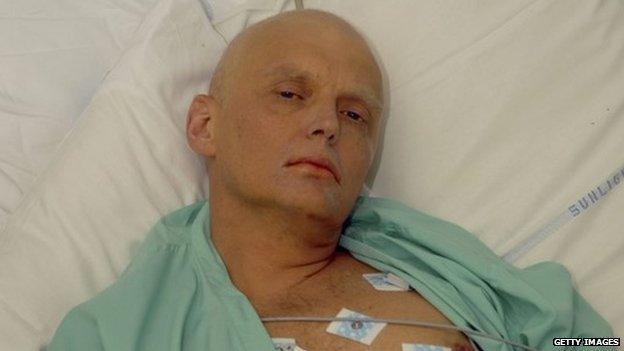
Alexander Litvinenko fell ill after a meeting with former KGB contacts in London in 2006
For three weeks Alexander Litvinenko desperately tried to fight off the radiation that was destroying his body from within.
His wife Marina can still recall the last time she saw him. He was smiling in what she recalls was a sad way. She said she would be back tomorrow.
"He suddenly just said 'I love you so much'," she remembers.
"I said 'Yes, of course. I love you too'."
But when she got home, she received a call from the hospital telling her to rush back in. She did not get the chance to speak to him again.
As he lay dying in his hospital bed, Alexander Litvinenko had remained the trained operative he had always been and tried to recall for police every detail that might hold a clue to his poisoning.
For the police, he was something unique - a living murder victim - a man who was going to die but had time to talk to them.
So who did he hold responsible for the mysterious illness which was taking such a terrible toll on his body? "Everything that happened to him and he was able to speak - able to sign - he said Putin was responsible for his death," his widow told the BBC.
Murder inquiry
The public inquiry will examine the central question - who was responsible for what was described by a lawyer in a previous hearing as 'an act of state sponsored nuclear terrorism on the streets of London'?
It was one of the most remarkable and sensitive murder cases in modern times.
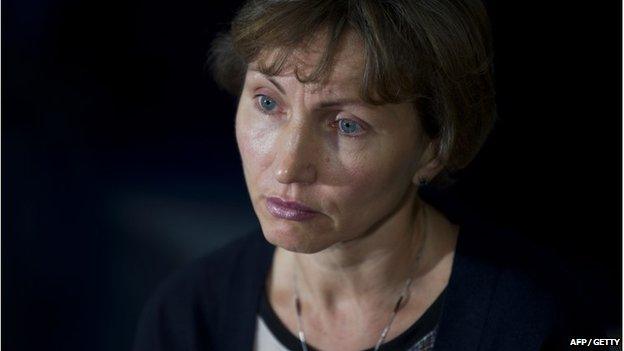
Marina Litvinenko has been fighting for a public inquiry
"This inquiry was different from any other investigation that I've ever been involved in," says Peter Clarke, who at the time ran the Metropolitan Police Counter-Terrorism Command which handled the investigation.
"It was not only a murder inquiry but there were other key areas that we had to think about: public safety - over 40 sites of radioactive contamination in public places, on public transport, aircraft, offices, restaurants... And then there are the international dimensions, the diplomatic dimensions and the intelligence areas that came into this inquiry."
Much is already known about the broad brush of events - that Alexander Litvinenko was killed by radioactive Polonium 210 and that two Russians, Alexander Lugovoi and Dimitri Kovtun, are believed by police to be responsible.
They are believed to have administered the substance in a cup of tea at the Millennium Hotel's Pine Bar in central London. Both men, though, have denied any involvement.
Fierce critic
This inquiry may reveal new details of the trail of evidence, though - a radioactive trail which shows that the Pine Bar may have been the third attempt to kill Litvinenko.
But one issue never publicly examined is that of motivation. Why was Litvinenko killed? And crucially - was it on the orders of the Russian state? That is one subject this inquiry will be looking at.
Litvinenko was a former FSB officer who had become a fierce critic of Vladimir Putin, first in Russia and then in Britain where he eventually received citizenship.
The inquiry was formally created in July 2014 after the government finally relented in the face of pressure from Marina Litvinenko and Sir Robert Owen, a judge then sitting as coroner but now chairman of the inquiry.
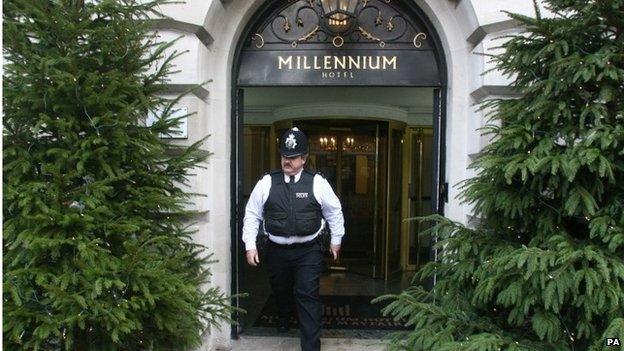
The inquest process had hit a major problem - the government had demanded that certain material be kept secret but there is no provision for that in an inquest.
So both Marina Litvinenko and Sir Robert argued that the inquest should be converted into a public inquiry in which material can be considered in closed session. The government at first resisted but Marina Litvinenko persisted with legal challenges even as her money began to run out.
'Secret intelligence'
In July the government changed its stance. This was seen in some quarters as a reaction to worsening relations with Moscow.
In the past there was suspicion that there was a desire to put the Litvinenko case to bed and get back to business but by last summer the crisis over Ukraine had changed Britain's perspectives on Russia and may have led to the decision to hold an inquiry which could look at the issue of state responsibility.
At a pre-inquest hearing, lawyers for the inquiry said that the material in possession of the British government did establish a 'prima facie case' for the culpability of the Russian state in the death. But this may well be secret intelligence which will not come out in public evidence.
One thing the inquiry will be unlikely to look at in open session is Alexander Litvinenko's relationship with MI6.
At one hearing, a lawyer for the widow of Alexander Litvinenko said that her husband had carried out work for MI6 and had a dedicated handler or case-officer with the pseudonym of Martin.
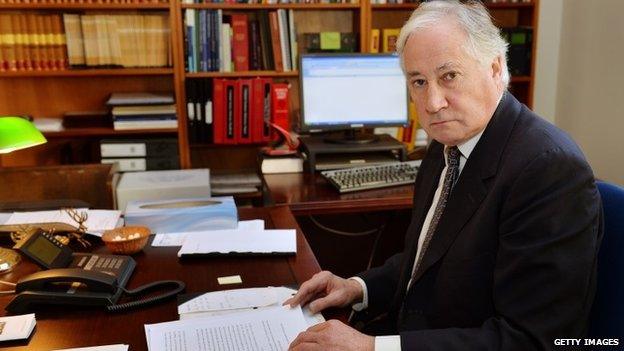
Sir Robert Owen requested a public inquiry so he could examine whether the Russian state had a role in Litvinenko's murder
This, the lawyer argued, meant that the inquest needed to look at whether the British state failed in its duty of care to Alexander Litvinenko by failing to take sufficient steps to protect him - in other words, could it have prevented the murder? In the end that issue was ruled out of the final inquiry.
It has been a long journey. I first interviewed Marina soon after her husband's murder when she showed a determination to uncover the truth.
Speaking to her eight years on, she remains as firm as ever in that pursuit and still has confidence in the ability of the British justice system to deliver final answers, despite all the ups and downs on the way.
The next few months will be the final test of that.
- Published27 January 2015
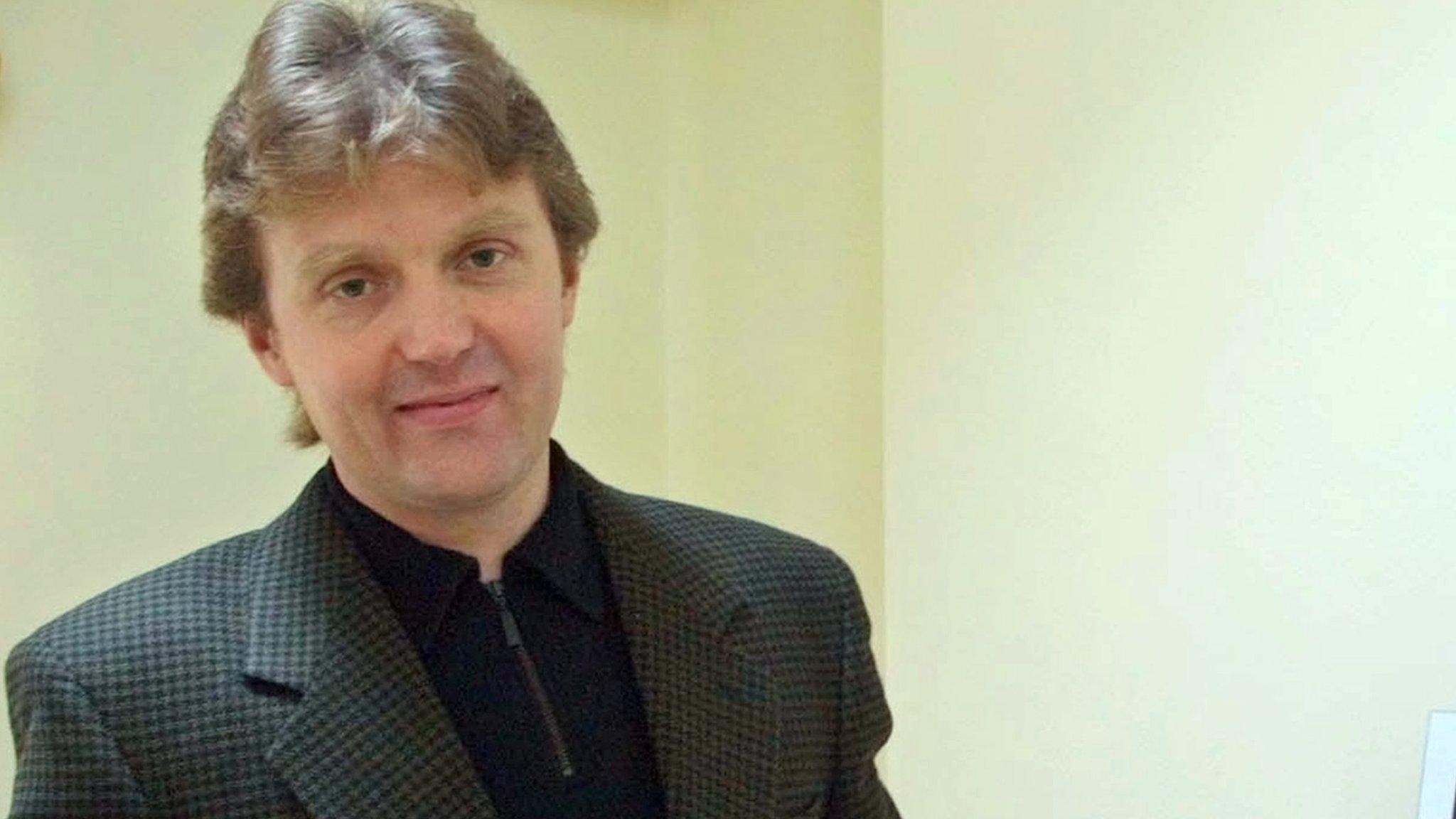
- Published21 January 2016
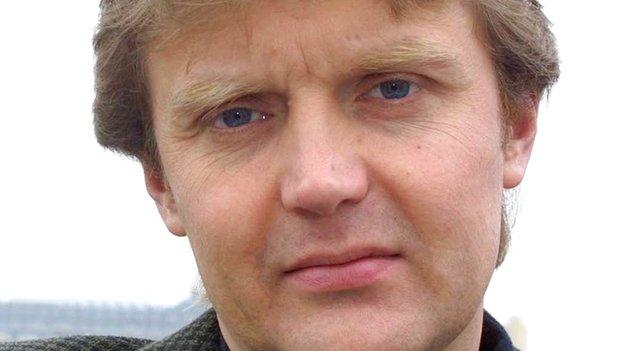
- Published20 September 2012
